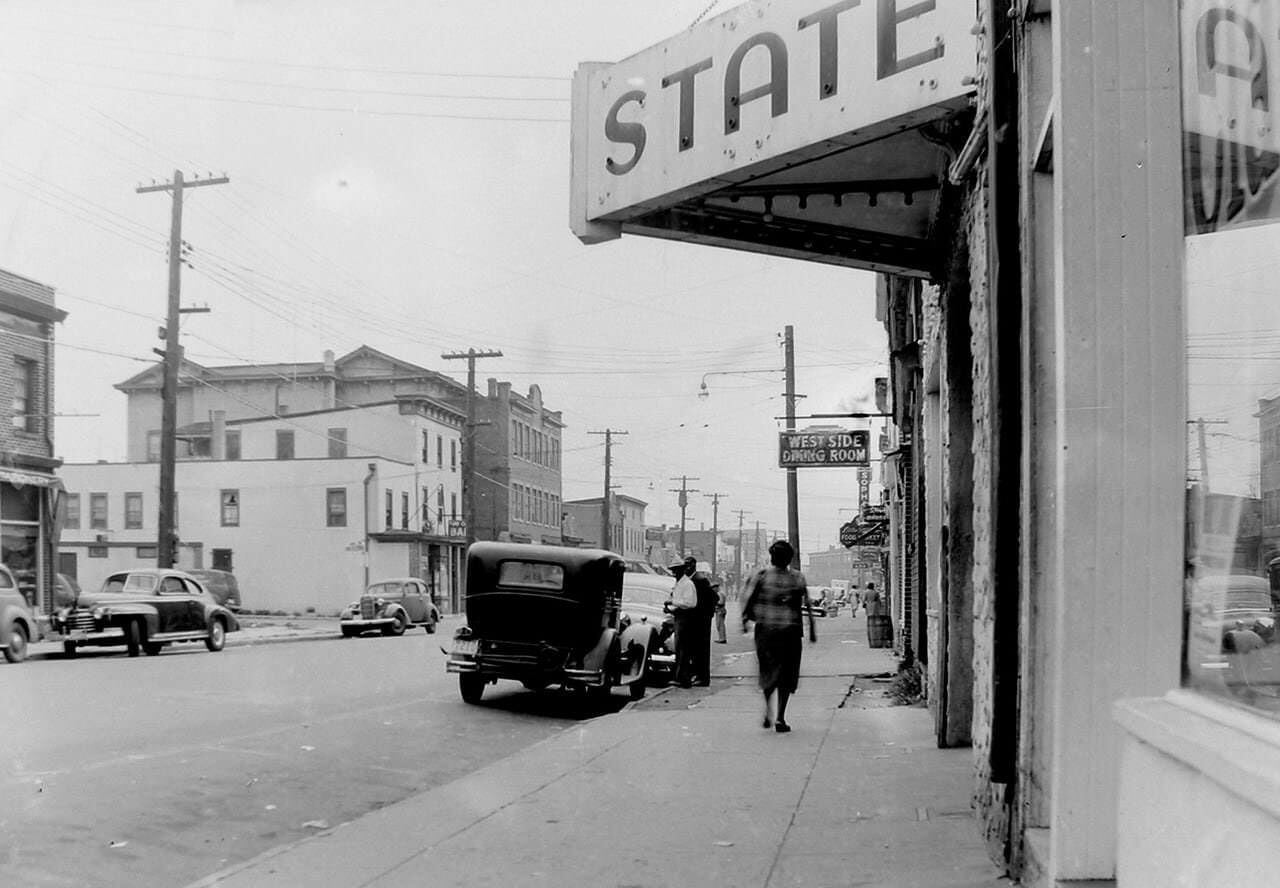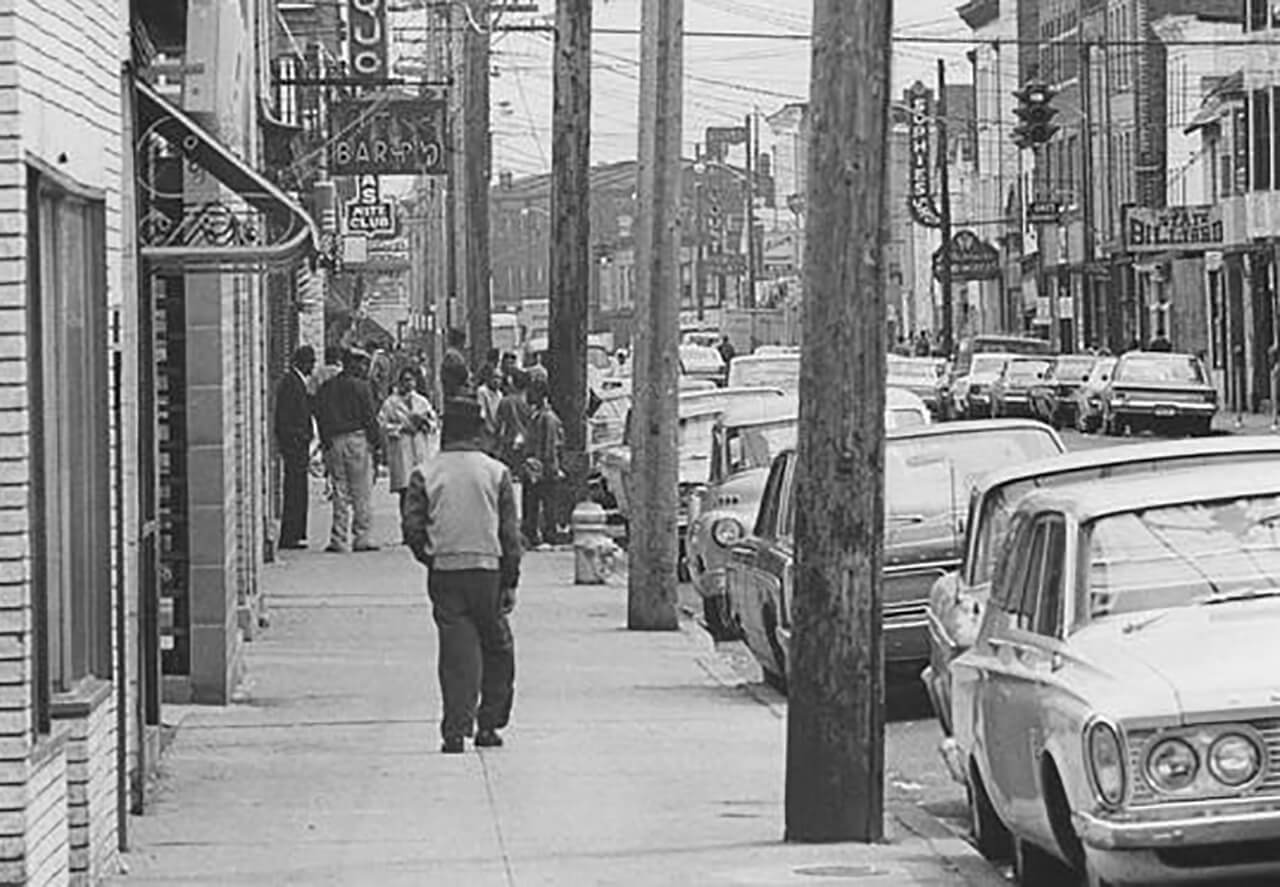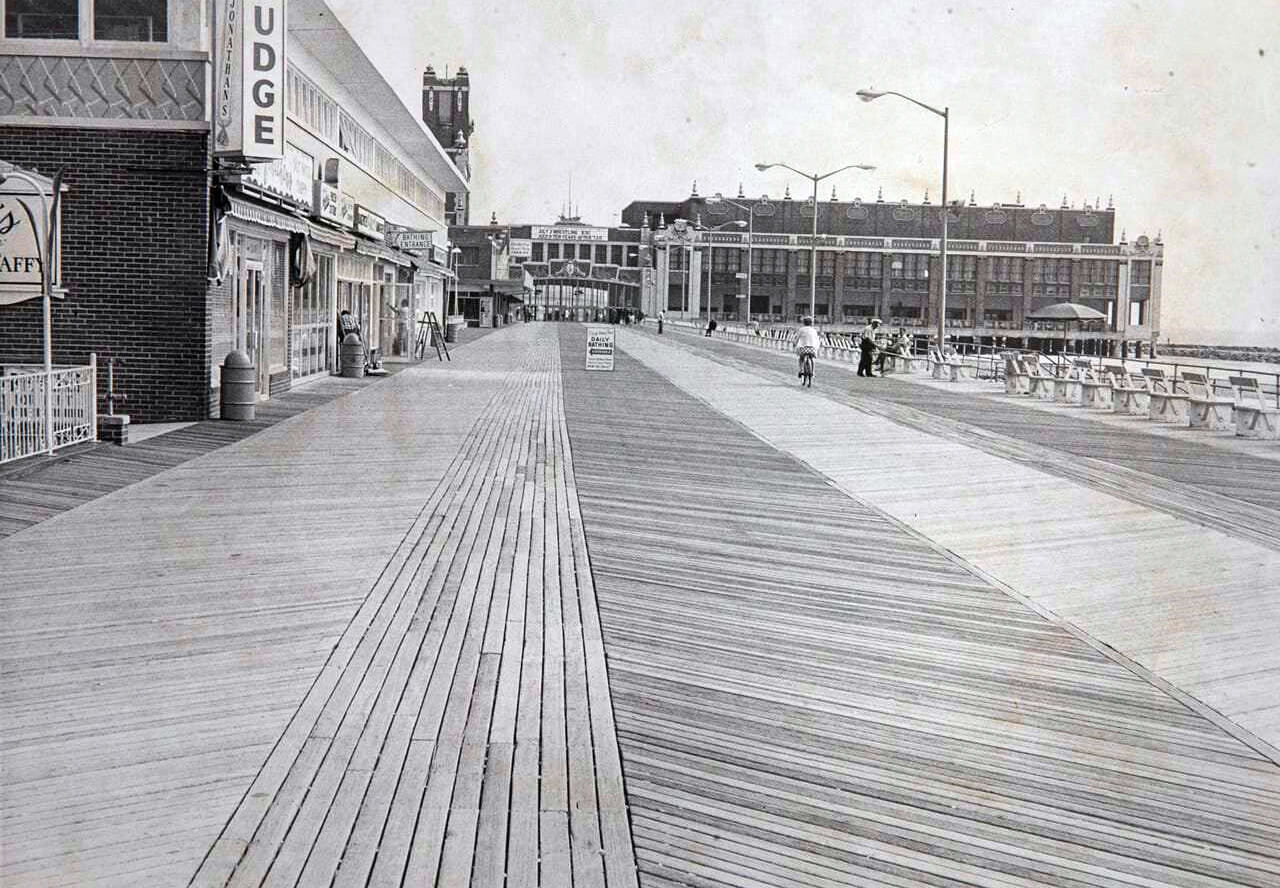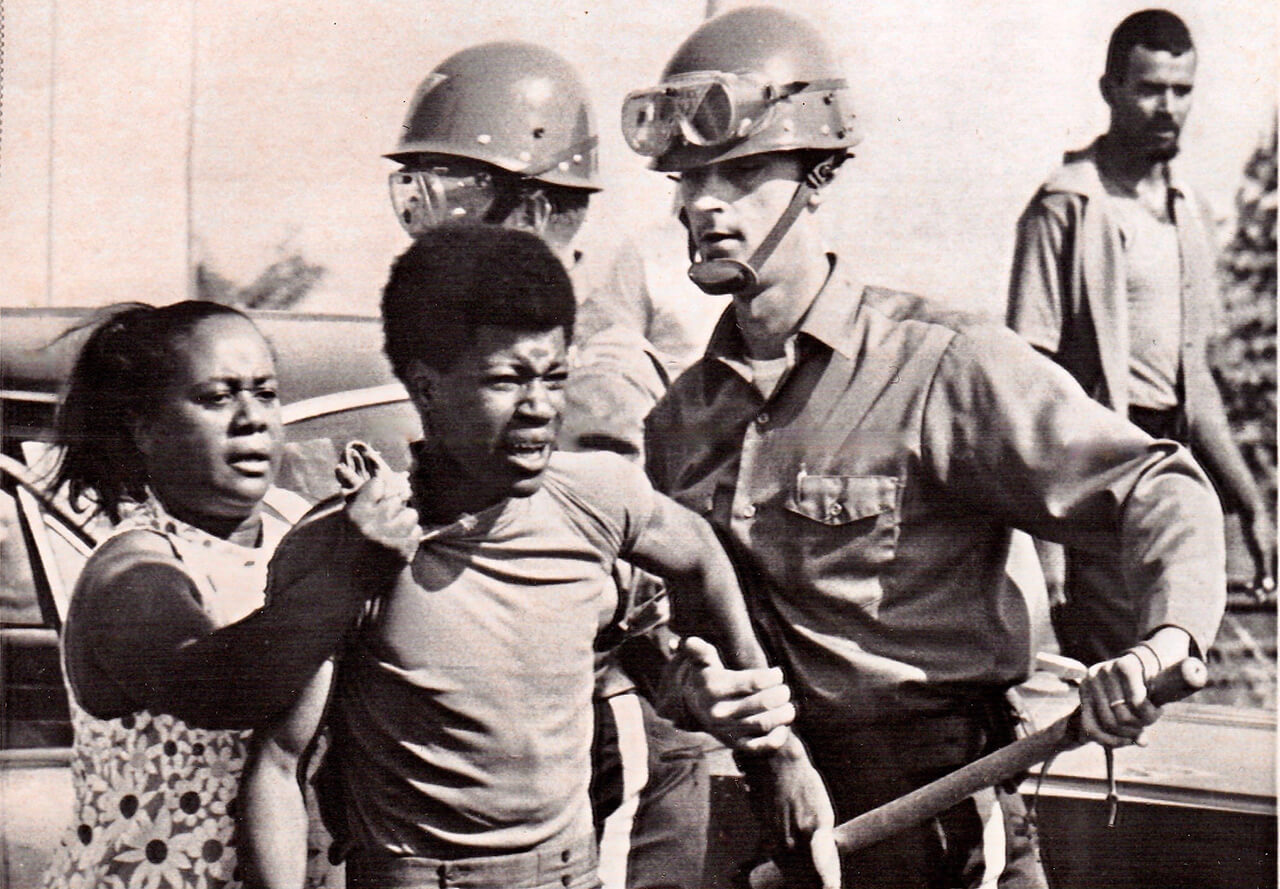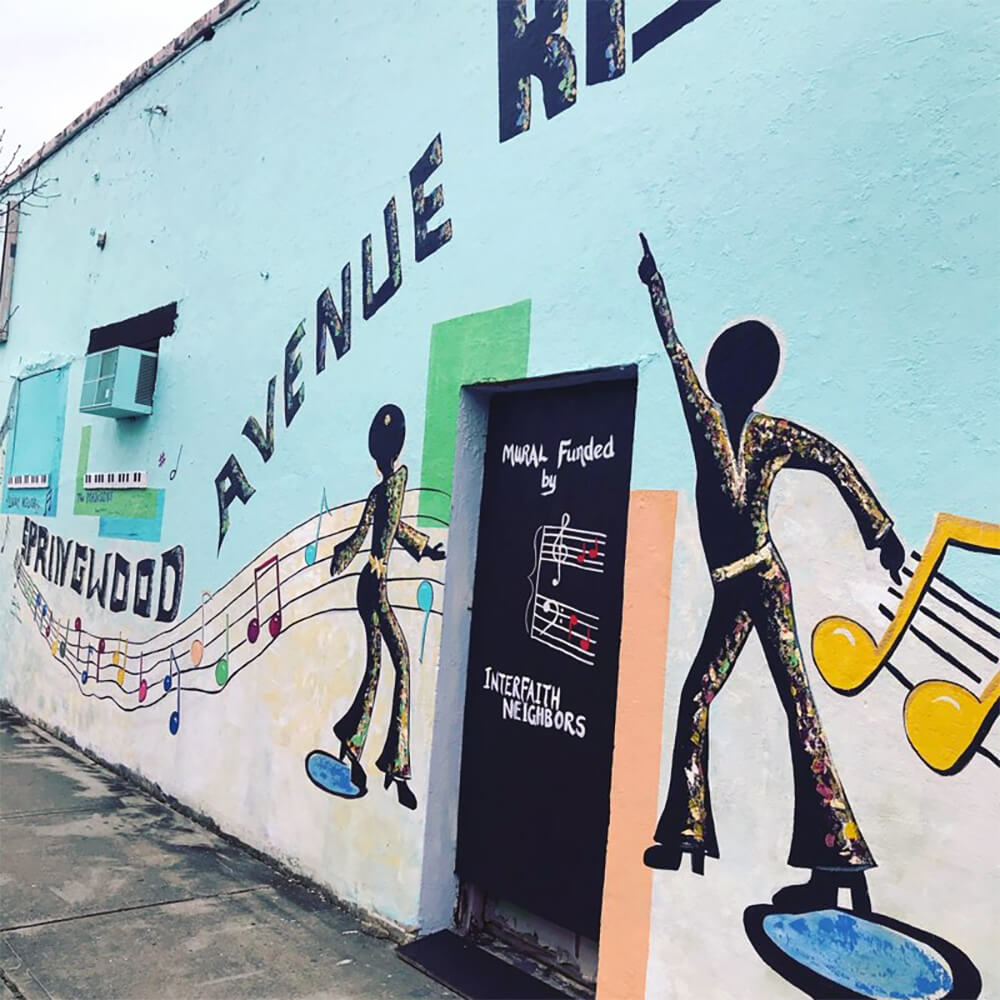Paradoxical Paradise: An African American Oral History and Mapping Project on Asbury Park
Project Directors
Dr. Hettie V. Williams, Professor Melissa Ziobro, and Dr. Geoff Fouad
Mission Statement
This multiyear initiative seeks to explore the largely untold experiences of African Americans in Asbury Park, New Jersey from the founding of the city in the 1870s to the present. Asbury Park is well-known as a site of urban rebellion, but it has also been a pivotal center of black settlement, Jim Crow–era segregation, American music culture, and social justice. In many respects, the story of African Americans in Asbury Park provides us with a window into the larger history of African Americans in the United States.
Phase I of the project addresses the outsized role that the 1970 riots have played in the public’s perception of Asbury Park. We hope to explore the existing archives and historiography, and conduct oral history interviews with as many willing narrators as possible. Our findings will be accessible to the public via the web, where an interactive map will deliver oral history narratives and primary sources linked to places. A companion monograph or brick–and–mortar exhibit are both distinct possibilities. Collaborating with community members and constituencies will be key, and we hope that our work will become a larger platform for conversations about social equality and restorative justice in Asbury Park, New Jersey.
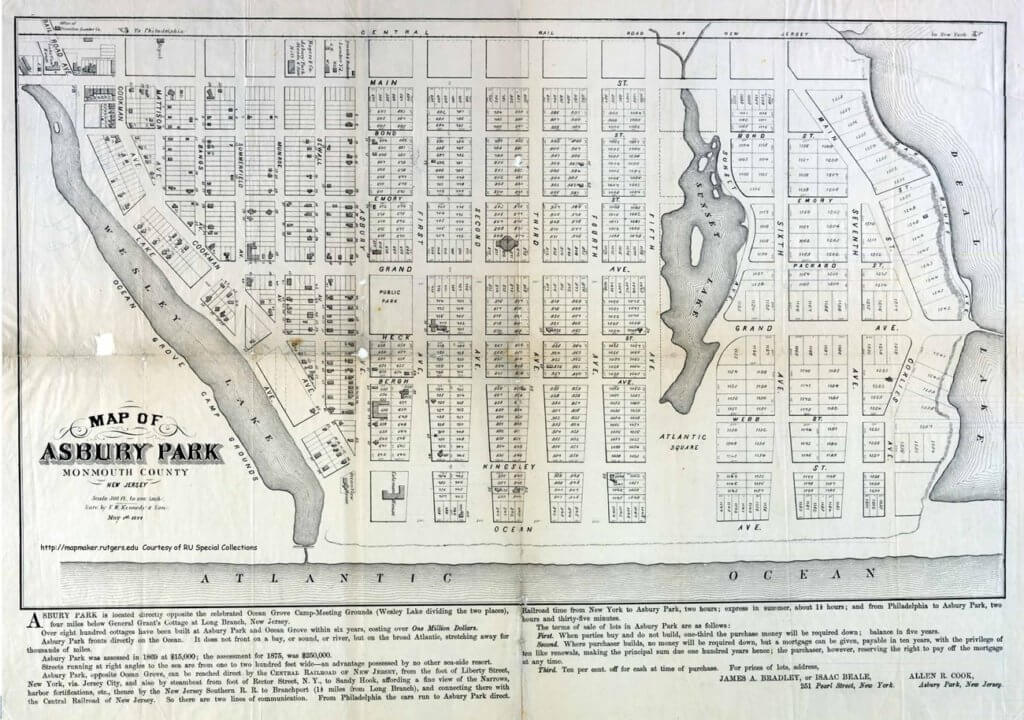
Map of Asbury Park 1877 Courtesy of Rutgers University Library Special Collections
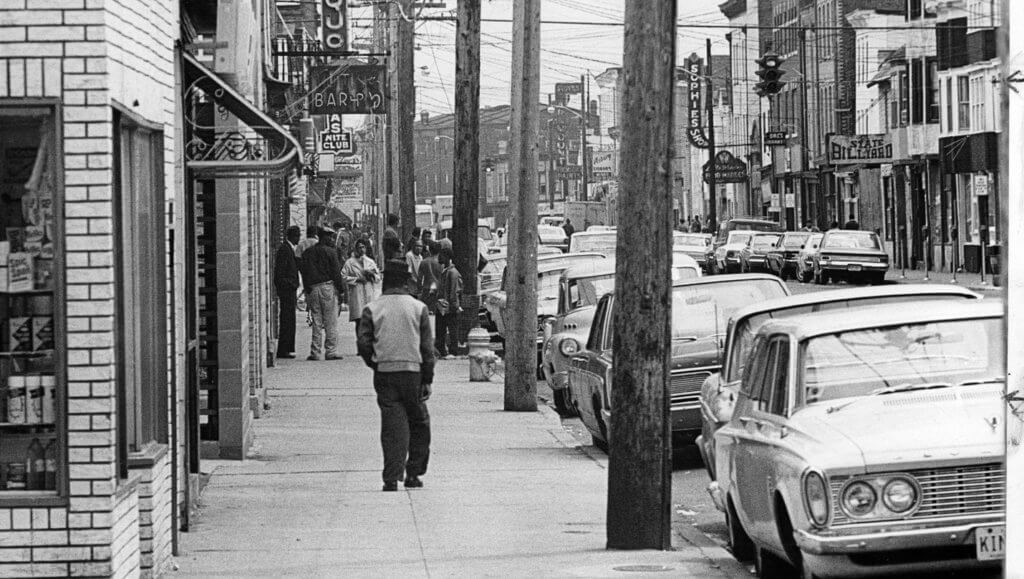
Springwood Avenue on the West Side 1968 Asbury Park File
Photo Courtesy Asbury Park Press USA TODAY NEWS NETWORK
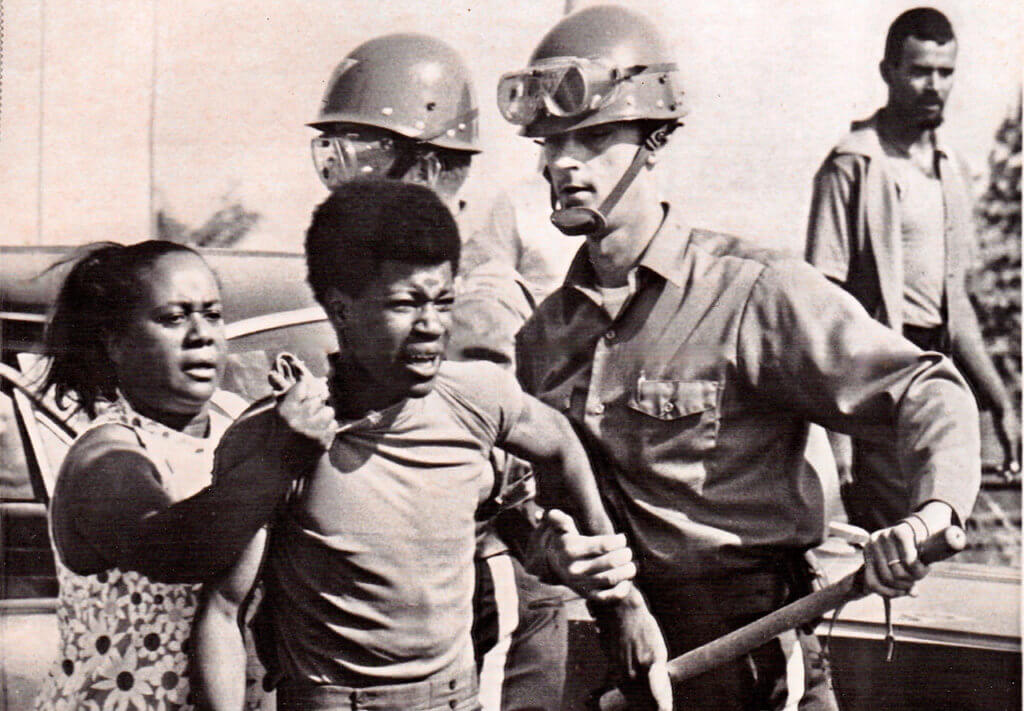
Photo from the July 1970 riots
Courtesy Asbury Park Press USA TODAY NEWS NETWORK
Phase I Deliverables
Paradoxical Paradise: Asbury Park, An African American Oral History and Mapping Project, is a collaborative endeavor organized by Monmouth University. It seeks to explore the untold story of African Americans in one of New Jersey’s best-known shore resorts. It rethinks traditional top-down histories of the community, (e.g. Wolf 2005; Chantal-Pike 2003, 2005; Bilby and Ziegler 2005, 2009), which have emphasized the town’s development as a railroad resort, important early community leaders such as James A. Bradley, and Clarence Hetrick, the city’s pivotal role in America musical history, and the community’s struggles in the aftermath of the 1970s riots. Instead, it focuses on the African-American community, present since Asbury Park’s creation but overlooked, marginalized, and erased in most community histories.
This is a community history project by and for the community, which endeavors to combine the best of current scholarship with a strong public-history component. The project will lead to a variety of scholarly and popular products, including a richly-illustrated website, an oral history archive, and in the long-run a peer-edited monograph published by an academic press and a video project. At the same time, intangible products are envisioned, such as a new awareness and pride in local history, and a fruitful collaboration between a local university and community partners.
The first year will focus on identifying and assessing critical sources for telling the story of Asbury Park’s forgotten history. Members of the project team will visit numerous repositories to include, but not limited to: the Asbury Park Public Library, Monmouth County Historical Association, Monmouth County Archives, and the John Hope Franklin Research Center for African and African American History and Culture at Duke University. Non-traditional repositories will also be visited including local churches, senior citizens centers, fraternal halls, and police and fire stations. Key narrators will be identified and a select number of representative oral histories will be compiled, reflecting the African American experience in Asbury Park. A website will be created for the project, which will host the oral histories, and accompanying photos, as well as a digital interactive map.
Photo Gallery: African Americans in Asbury Park
Please click on one of the images below to access the photo gallery.
